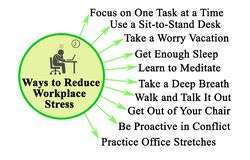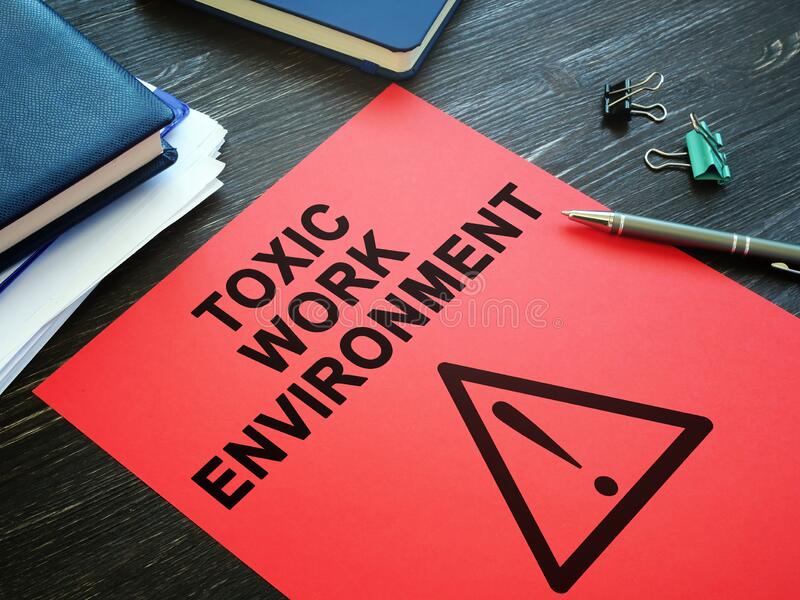
Resign: do you have no choice? or do you want to leave?
These sort of questions we are asked on a daily basis. Through this article I will attempt to bring some clarity to the situation Resigning from your place of employment in Australia is procedurally quite simple, but it can also be emotionally difficult and psychologically complex depending on the circumstances. This is because you may not be happy about the reasons you are resigning and might feel bitter or distressed by the events leading to the decision.
If the circumstances and events leading to your decision made you feel like you had to leave the company. You could then be actioning what is called a ‘forced resignation’. Resign: do you want to leave or do you have no choice? Lets discuss in detail today, its an important decision, possibly life changing
When are you being forced to resign?
A forced resignation occurs when you find yourself in a position that leaves you no other choice but to resign. Essentially, you may have been forced to resign in a circumstance where you felt your employer coerced you into doing it.
You may have been forced to resign when:
- Your employer refused to roster you on for shifts at your hospitality job. Forcing you formally resign and to find another place of employment.
- Perhaps your employer has made the workplace environment so unsafe for you that attending work would put you personally in very real physical, psychological, or emotional danger.
- For some reason your boss assumed that you had resigned and acted as if you no longer worked there. Even though you continued to come to work.
- Your employer stopped paying your wages and refused to do so in future.
Prove that you didn’t resign of your own free will
It is your responsibility to prove that you didn’t resign of your own free will. Rather that it was as a result of the action or inaction of your employer. Generally, if you clearly state that you are resigning, you have indeed resigned of your own free will. However, if you made the decision when you were under a lot of emotional and psychological pressure. You may not actually have resigned, even if you made your intention clear.

Heat of the moment resignation
For example, a heat of the moment resignation could happen when you are extremely upset with the actions of your employer. In turn tell them that you are resigning in retaliation. Then, after thinking about the situation, you might go back to your employer the next day and say that you do not actually intend on resigning. In this circumstance, your employer would most likely need to accept that you have not actually resigned. Because you only intended to resign in the heat of the moment. This is not a straight forward argument. There is no automatic obligation on the employer to allow you to withdraw the resignation.
When are you NOT being forced to resign?
Essentially, if you were not coerced into resigning. You clearly didn’t actually intend to resign in the heat of the moment, it is accepted that you resigned voluntarily. This distinction is vital. Because if you did indeed actually resign, there are very few claims you can make against your employer if you’re looking for compensation. For example, you can’t make any General Protections claims or Unfair Dismissal claims against an employer when you were the one to resign of your own free will. No matter how terribly you were being treated.

You may not have been forced to resign when:
- You resigned in response to disciplinary action, that is, you did something wrong. Your employer wanted to talk to you about possible consequences. Or perhaps you resigned at some point during the disciplinary procedure.
- You resigned because you had been suspended from work for disciplinary reasons. You might have thought that you were as good as fired because all of your employee access had been taken away. Hadn’t heard from your employer in a while, but this usually does not mean you’ve been forced to resign.
- Perhaps your employer wanted to change the terms of your employment. You felt you either had to accept the changes or resigned. If a decision hadn’t yet been made about any changes to your role, then you are not being forced to resign.
- You resigned because your employer wasn’t happy with your performance and wanted to take action to help you improve.
- You resigned because your employer was not paying you your wages when they were supposed to.
- Had enough of a toxic work place.

What can you do if you were forced to resign? What does Fair work Australia say?
If, all things considered, you believe you really did not have any choice but to resign, you may be able to apply for a claim at the Fair work Commission. In turn receive financial compensation for the actions of your employer. In an Unfair Dismissal claim, you can ask for a maximum of 26 weeks’ worth of wages as compensation. If you exercised any workplace rights that led to your forced resignation, you may be able to make a General Protections claim. This kind of claim has added benefit in that you can not only claim wages Also ‘general damages’ for the pain and suffering you experienced as a result of the forced resignation.
In deciding whether or not the amount of compensation you wish to claim should be granted, lots of factors will be taken into account, such as:
- How long you were employed by the company,
- How many permanent employees the company has,
- The reason you decided to resign in the heat of the moment,
- Any workplace bullying or harassment you may have endured,
- Your age, or specifically how close you are to retirement age,
- Whether or not the Company has the money to pay you out.
What if the circumstances that led you to resign still seem unfair, even if you resigned of your own free will?
Making the decision to resign, especially from a job that you enjoy and find very fulfilling, can be very psychologically distressing despite whether or not you feel you are being forced to do so. Will you be able to find a new job? What happens if no one will hire you in your preferred profession? Will your former employer give you a good reference? Or do you stay and continue to put up with a toxic work place.
In the past two years, with the pandemic raging on, these questions seem to be even more difficult to answer than ever before. It also raises questions about the circumstances in which we might call a resignation ‘forced’.
For example, say you’re a mother with two young, primary-age children and a partner who absolutely cannot work from home during the Omicron COVID-19 outbreak because they are a nurse or doctor. You work in an office that has valid requirements for staff to continue working in the office rather than from home. But all of your tasks can be completed from home. In turn you ask your employer if you can work from home, and they say no because they need you in the office to support those who cannot.

Employee responsibilities at home
You explain that you are a mother of two young children. You cannot leave them unsupervised at home because you don’t want to risk exposing them to day-care centers while the Omicron variant runs rampant. Your boss doesn’t budge, saying that you could very reasonably find people to watch the children who would not be a big COVID-19 exposure risk for your children. Maintaining it is vital to the company that you assist in the office. Many of your co-workers have already contracted the virus and you’re experiencing a staff shortage.
Forced to make impossible decisions
You are now in a position where you could reasonably follow your employer’s directions and find someone to mind the children. This would come with added COVID-19 exposure risks for both the sitter and your family. This makes you very nervous because your partner works in a hospital and is already a big exposure risk to your family. You couldn’t bring the children into work with you either. Partly because of the COVID-19 exposure risk, but also because you know they will be loud and restless and distract your co-workers. You feel that you’re being forced to make an impossible decision; risk exposing your unvaccinated children to the virus or resigning.
Under the forced resignation parameters as they stand, if you did resign, it is unlikely that it would be found to be forced. You intended to do it, you weren’t caught in a one-off, heat of the moment stressor. Your employer wasn’t making it impossible for you to carry out your role. Yet, all things considered, it feels like you really are being forced to resign. People severely ill with the Omicron variant are crowding the hospital system and everyone seems to be acting like it’s just a matter of time before they too contract the virus. Just three months ago, no one would have sided with your employer, but that was then, and this is now.

Confronting decision what to ultimately do, resign: do you want to leave?
This scenario is just one example of many that real Australians are facing today when confronted with the decision to resign. Or follow their employer’s reasonable directions. These difficult circumstances are really only now popping up because of the State and Federal Government’s “let it rip” approach to the virus. In 2021 your employer would have been more than willing to let you work from home under the lockdown laws. However 2022 is completely different. Everybody in theory is back to work soon. A lot of employees won’t want to do for a myriad of reasons, the unfair dismissals will be increasing
There is no government support for businesses anymore. Tens of thousands of people contracting the virus every day, the workforce is suffering, leaving those who are not infected to carry double their usual workload. Many businesses have had to shut altogether because their entire staff team has contracted the virus.

Conclusion to Resign: do you have no choice?
It is difficult to say who would win if an employee were to bring a forced resignation claim in the circumstances described above. Employment law doesn’t have much to say on what counts as a ‘reasonable’ direction during this current Omicron outbreak. It probably never will. All anyone can ask us to do is balance what’s best for us as individuals with what’s best for our community. Whether that means resigning or not.
I hope you enjoyed the article and found it informative. I have deliberately kept it non legalistic, (a more legalistic article, “resign, do’s and don’ts“, when faced with choices. Also, “5 reasons not to resign is worth a read. All this it can be difficult, its challenging times to say the least.
You do not have to be bullied, harassed, subjected to frivolous workplace investigations, unfair dismissal issues etc. Give us a call, its free, we are experienced workplace advisors and representatives. ( we are not lawyers). Explore your options. all matters to do with Fair work Australia, call us today. Facing a toxic workplace, that’s pressures you to resign? We have a informative page on coping with toxic workplace culture. Matters to do with probation periods, worker’s rights, employment rights, abandonment of employment
We are here to help Call 1800 333 666
Resign: do you have no choice?
Resign, forced to leave my job






